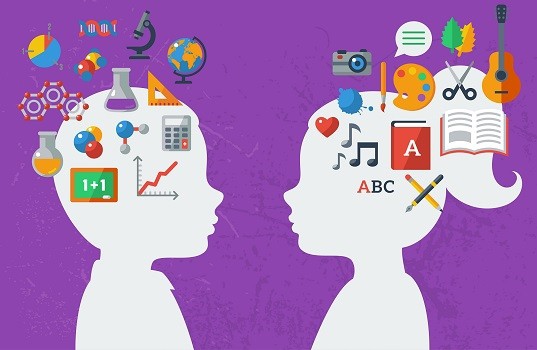Courses like the Bachelor of Elementary Education (B.El.Ed) and B.Sc. Home Science are only available to women, while girls’ colleges continue to dominate the available seats in Psychology.
With females venturing in male-dominated spaces and vice versa, our workspaces are slowly but steadily becoming gender-neutral. However, it seems that the University of Delhi (DU) is still perpetuating (and encouraging) gender stereotypes – even in 2017.
As of now, there are only five out of twelve colleges co-educational colleges in DU which offer an undergraduate degree in Psychology. None of the five options available for boys hold high reputation, whereas girls have the option of studying the subject at prestigious institutions such as Lady Shri Ram College (LSR) and Jesus and Mary College (JMC). The limited number of seats and absence of good colleges deter boys from studying Psychology from DU and ultimately, they have to seek admission in expensive private colleges. Anuradha Das Mathur, the Founding Dean of the Vedica Scholars Programme for Women, writes in an essay, “The benefits of diversity are as critical in the classroom as they are in the workplace. In areas influenced by psychology, the absence of men brings along even more exaggerated risks.”
While the situation is bad in Psychology, it is even worse (hopeless) in the elementary education programme. The Bachelor of Elementary Education (B.El.Ed), a four-year integrated professional degree programme which qualifies a student to practice as teachers at the elementary school level, is currently available at eight colleges – none of which are co-ed.
University of Delhi colleges that offer B.El.Ed.
- Aditi Mahavidyalaya
- Gargi College
- Institute of Home Economics
- Jesus & Mary College
- Lady Shri Ram College for Women
- Mata Sundari College
- Miranda House
- Shyama Prasad Mukherjee College
There are very good chances that during school we addressed more teachers as ‘ma’am’ as compared to the seldom-used ‘sir.’ Teaching is one such field where the male-female ratio is almost equal (as of 2011, 45.5% of teachers in schools are women). Teaching is believed to be ideal for women because the short working hours, holidays, and statutory work environment make it convenient for them to manage household responsibilities alongside their job. Also, stereotypical feminine traits like motherly affection and patience are associated with teaching. This is the reason why more and more women take up teaching as a career, but just because a career path is often charted by certain gender norms, this shouldn’t be an excuse for the public-funded educational institutions to limit the access for another gender.
Just like B.El.Ed, there are no DU colleges that offer Home Science to boys. Currently, only two all-girls’ colleges – the Institute of Home Economics and Lady Irwin College – teach B.Sc. (Hons.) Home Science. In popular culture, Home Science as a subject has been described as “cooking or stitching,” a course that teaches you how to be a good housewife. People often overlook that a Home Science student can very well be a nutritionist, dietician, counsellor, or a textile specialist. It’s true that enriched prejudices and clichés are reasons which deter boys from pursuing Home Science, but the lack of seats/colleges shouldn’t be one.
Yatin Arora, a hotel management and catering student of Ansal University says “I had Home Science in class 12th, and I wanted to study it further. However, there were no options available for me in the University of Delhi. The girls who scored less than me in Home Science have secured seats in Lady Irwin College, while I’m studying in a private college.”
It is indisputable that we need more female engineers and scientists, but we also want more boys in the capacity of therapists and crèche owners. The idea that culinary art, elementary education, and psychology are women-oriented fields is a patriarchal construct. The University of Delhi, as a progressive-feminist space, shouldn’t reinforce these gender stereotypes by segregating some so-called feminine courses from interested male students.
Feature Image Credits: The Next Regeneration
Niharika Dabral





Comments are closed.